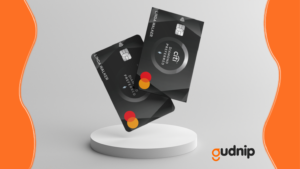Finding the best personal loans for beginners can be a vital step toward financial growth. Many options available cater specifically to newcomers in borrowing, making it easier to get started.
With the right knowledge, you can navigate the loan landscape efficiently. Knowing your options empowers you to make a well-informed decision tailored to your needs.
Keep reading to discover the best tips for securing a personal loan that suits you perfectly!
Understanding Personal Loans
Understanding personal loans is the first step for beginners looking to borrow money. A personal loan is a type of loan that you can use for various purposes, such as debt consolidation, home improvements, or even unexpected expenses. The lender gives you a certain amount of money upfront, and you agree to pay it back over time, usually with interest.
One of the most important things to know about personal loans is that they are often unsecured. This means you don’t need to put up collateral, like your home or car, to get the loan. However, because they are unsecured, lenders usually require a good credit score to approve your application. Understanding your credit score can help you know your chances of getting a loan.
Another key point is the loan terms. Personal loans typically have set repayment periods ranging from one to seven years. You will make monthly payments until the loan is paid off. Interest rates can vary widely, so comparing options is essential for finding the best personal loans for beginners and ensuring you choose the right fit for your budget.
Key Features of Beginner Loans
Key features of beginner loans make them accessible and user-friendly for new borrowers. These loans usually come with lower borrowing limits, which helps beginners manage their finances better. Lenders understand that newcomers might not have much experience with credit, so they design these loans to be straightforward and easy to apply for.
Interest rates for beginner loans can also be more favorable than for traditional loans. This means that beginners can borrow money without facing extremely high costs. Many lenders offer fixed rates, which provide clarity on how much you’ll need to pay each month. This helps in planning a budget and reduces surprises.
Lastly, the application process for beginner loans is often fast and simple. Many lenders allow online applications, making it convenient for you to apply from home. Additionally, some lenders have quick approvals, which means you can get the funds you need sooner rather than later. These features make beginner loans an excellent choice for those starting their financial journey.
Top Lenders for New Borrowers
When looking for the top lenders for new borrowers, it’s essential to consider options that offer beginner-friendly terms. Many banks and online lenders provide personal loans specifically designed for individuals with limited credit histories. These lenders often recognize that everyone has to start somewhere and want to help you build your financial future.
Some popular options include large online lenders, which typically offer quick applications and approvals. Many of these lenders have user-friendly websites and mobile apps, making it easy to manage your loan. They also provide resources to help you understand the borrowing process, which is crucial for first-time borrowers.
Credit unions are another excellent choice for new borrowers. They usually have lower interest rates and more personalized service. Because they are member-owned, credit unions often focus on community and aim to help their members succeed financially. Exploring these lenders can lead to finding the best personal loans for beginners.
Interest Rates Explained
Interest rates are a crucial part of understanding personal loans. They represent the cost of borrowing money, which is how lenders make a profit. When you take out a loan, you will pay back not only the amount you borrowed but also extra money called interest. This interest is usually expressed as a percentage of the total loan amount.
There are two main types of interest rates: fixed and variable. A fixed interest rate stays the same throughout the life of the loan, making your monthly payments predictable. On the other hand, a variable interest rate can change over time, which means your monthly payments may go up or down. Knowing the difference can help you choose the best loan for your needs.
For beginners, it’s essential to look for loans with competitive interest rates. Even a small difference in the rate can affect how much you pay overall. Many lenders offer tools to help you compare rates and see how they impact your total loan cost. Understanding interest rates can empower you to make better financial choices and secure the best personal loan for your situation.
How to Apply for Personal Loans
Applying for personal loans is a straightforward process that beginners can easily follow. Start by researching different lenders to find one that fits your needs. Look for lenders that offer personal loans designed specifically for new borrowers. Compare their interest rates, loan amounts, and terms to find the best option for you.
Once you choose a lender, the next step is to complete an application. Most lenders allow you to apply online, which can be done in just a few minutes. You’ll typically need to provide personal information, like your name, address, employment details, and income. Some lenders may also ask for your Social Security number for verification purposes.
After submitting your application, the lender will review it and decide whether to approve your loan. If approved, they will outline the terms, which include the loan amount, interest rate, and repayment schedule. Make sure to read this information carefully before accepting the loan offer, as it will help you understand your financial commitment.
Building Credit as a Beginner
Building credit as a beginner is essential for your financial future. Credit is like a report card for how you handle money, and it can affect your ability to get loans or even rent an apartment. One of the easiest ways to start building credit is by opening a credit card. Look for options designed for beginners, such as secured credit cards that require a cash deposit as collateral.
Using your credit card responsibly can help you build a good credit score. To do this, make small purchases that you can pay off each month. Always pay your bill on time to avoid late fees and negative marks on your credit report. Keeping your credit utilization low, which means not using too much of your available credit, also helps improve your score.
In addition to credit cards, consider other options like becoming an authorized user on someone else’s credit card. This way, you can benefit from their good credit history. Checking your credit report regularly is also important. It allows you to see your progress and make sure there are no errors that could hurt your credit score.
Common Mistakes to Avoid
When applying for personal loans, one common mistake is not checking your credit score beforehand. Many beginners underestimate how important their credit score is in securing a loan. A low score can lead to higher interest rates or even loan denial. Always review your credit report before applying and take steps to improve it if needed.
Another mistake to avoid is not comparing multiple lenders. Many new borrowers rush into a loan agreement without exploring their options. This can result in missing out on better interest rates and favorable terms. Take the time to shop around and compare different lenders to find the best deal for your situation.
Finally, some beginners fail to read the loan agreement carefully. It’s crucial to understand the terms, including interest rates, repayment schedules, and any fees. Overlooking important details can lead to unexpected costs later. Always read the fine print and don’t hesitate to ask questions if something is unclear.





